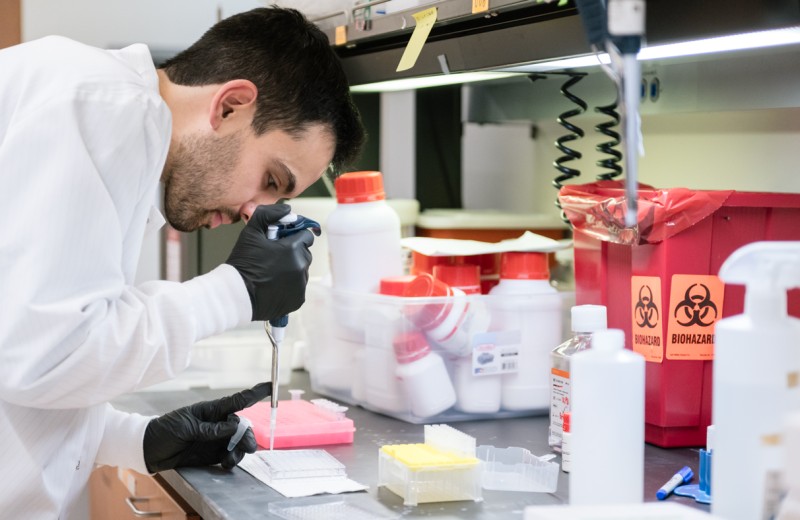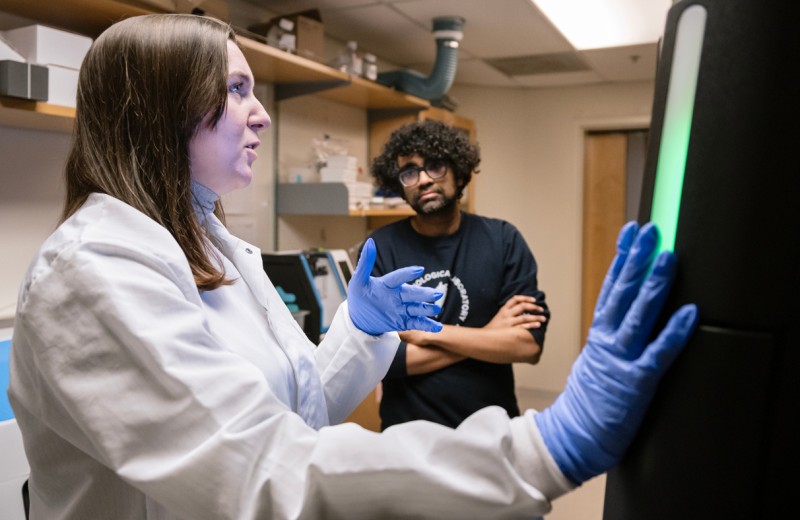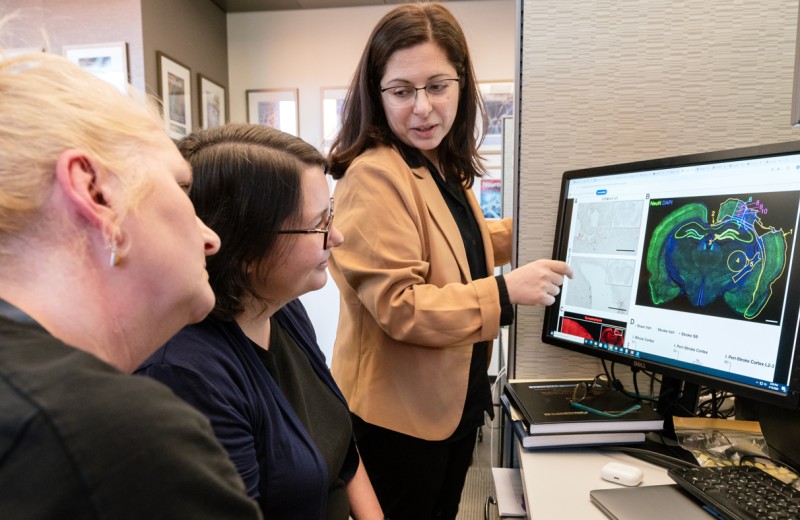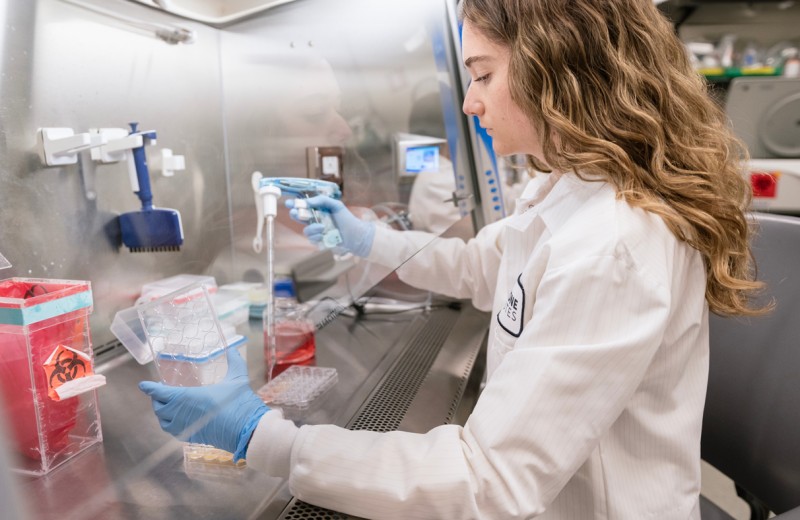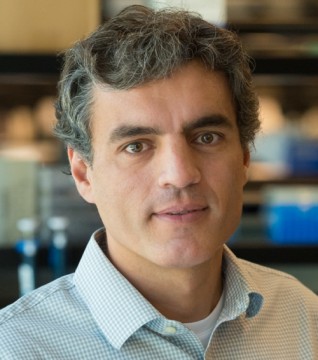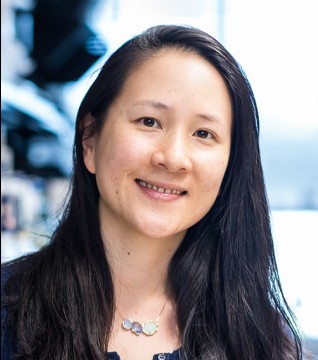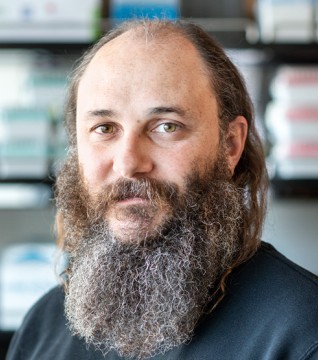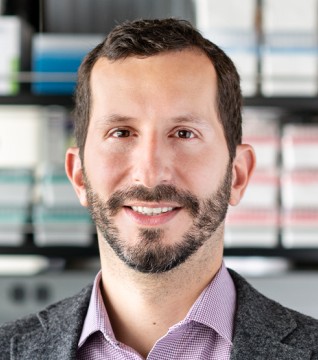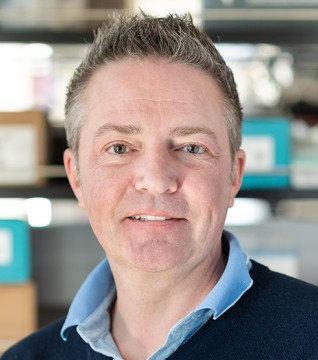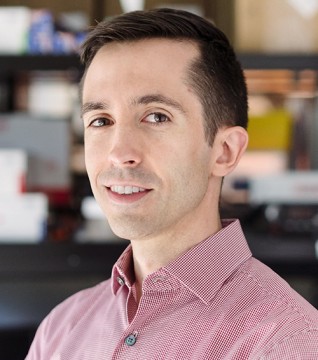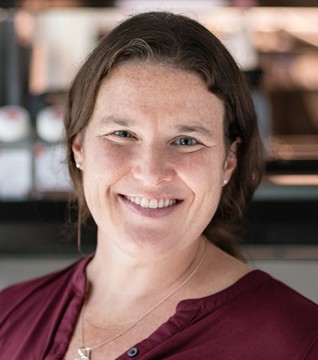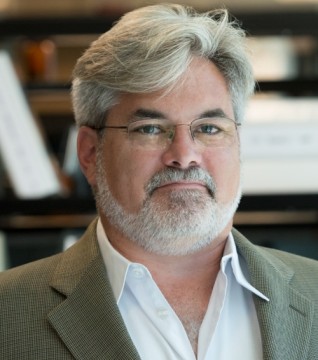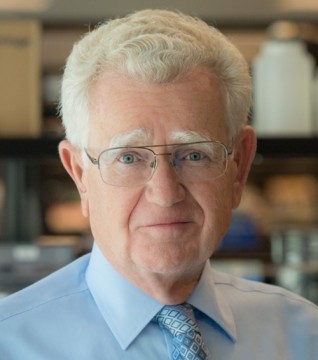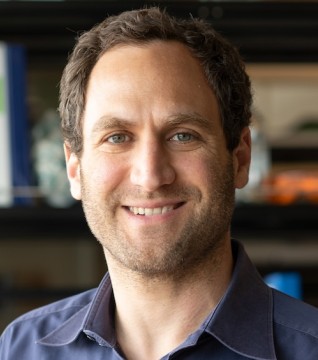Gladstone welcomes inquiries from journalists. Our media relations staff is on hand to provide local, regional, national, and international journalists with accurate information about Gladstone’s research and our investigators’ areas of expertise. We are available to arrange interviews with Gladstone scientists and assist in developing story ideas.
Contact
For media inquiries or interview requests, email media-relations@gladstone.org
Kelly Quigley
Director, Science Communications & Media Relations
Direct line: 858-997-9462
Email
Julie Langelier
Associate Director, Communications
Direct line: 415-734-5000
Email
News Releases
1 - 15 of 221 Results
From Chaos to Clarity: New Tool Finds Connections in Complex Cell Data
From Chaos to Clarity: New Tool Finds Connections in Complex Cell Data
A powerful computation tool integrates different forms of biological data to reveal how cell types are related across tissues, experiments, and species—information that’s crucial for understanding disease.
News Release Research (Publication) Data Science and Biotechnology Pollard Lab AI Big DataZhaoqi Yan Named a 2025 Warren Alpert Distinguished Scholar
Zhaoqi Yan Named a 2025 Warren Alpert Distinguished Scholar
Gladstone researcher receives prize to study blood-brain barrier dysfunction and its impact on neurological disease.
Awards News Release Alzheimer’s Disease Neurological Disease Akassoglou LabKarin Pelka Wins Grant to Advance Immunotherapy for Colorectal Cancer
Karin Pelka Wins Grant to Advance Immunotherapy for Colorectal Cancer
The Colorectal Cancer Alliance has awarded Pelka a $500,000 grant to develop novel immunotherapies that overcome the most common form of colorectal cancer.
Grants News Release Cancer Pelka LabUltimate Self-Sacrifice: Bacteria Activate Unusual Defense to Evade Viral Attack
Ultimate Self-Sacrifice: Bacteria Activate Unusual Defense to Evade Viral Attack
Scientists discover that a well-known defense system in some bacteria can kill the cell as a last resort if viruses try to thwart it.
News Release Research (Publication) Virology2025 Searle Scholar Andrew Yang to Expand Inquiry into Blood-Brain Barrier
2025 Searle Scholar Andrew Yang to Expand Inquiry into Blood-Brain Barrier
The Gladstone scientist has received a prize to study how molecules cross the blood-brain barrier and influence brain health.
Grants News Release Neurological Disease Yang LabCould This Molecule Be ‘Checkmate’ for Coronaviruses?
Could This Molecule Be ‘Checkmate’ for Coronaviruses?
Scientists develop powerful drug candidates that could head off future coronavirus pandemics.
News Release Research (Publication) COVID-19 Virology Krogan Lab Ott LabPowerful New Tool Can Identify Cells Promoting Health or Disease
Powerful New Tool Can Identify Cells Promoting Health or Disease
Gladstone scientists developed a computational approach that accurately distinguishes cells of different identities or characteristics in complex biological samples used in diverse areas of biomedical and discovery research.
News Release Research (Publication) Corces LabStructure Matters: Scientists Create New Guide to Compare DNA Maps
Structure Matters: Scientists Create New Guide to Compare DNA Maps
Gladstone scientists Katie Pollard and Ketrin Gjoni answer questions about their latest study, which appears in the journal Nature Methods.
News Release Research (Publication) Data Science and Biotechnology Pollard Lab Genomics Human GeneticsDaily Drug Captures Health Benefits of High-Altitude, Low-Oxygen Living
Daily Drug Captures Health Benefits of High-Altitude, Low-Oxygen Living
Gladstone researchers develop a drug that mimics the cellular effects of low-oxygen therapy for the treatment of inherited mitochondrial diseases.
News Release Research (Publication) Jain LabSeeing the Unseen: New Method Reveals ’Hyperaccessible’ Window in Freshly Replicated DNA
Seeing the Unseen: New Method Reveals ’Hyperaccessible’ Window in Freshly Replicated DNA
A Gladstone team has unearthed new findings about what happens during the minutes and hours after a cell divides, expanding our understanding of human biology—and potentially leading to better medicines.
News Release Research (Publication) Cancer Data Science and Biotechnology Ramani LabStem Cell Therapy Jumpstarts Brain Recovery After Stroke
Stem Cell Therapy Jumpstarts Brain Recovery After Stroke
Gladstone scientists showed that modified stem cells can improve brain activity, even when administered more than a month after a stroke.
News Release Research (Publication) Neurological Disease Paz LabSizing Up the Risk of Bird Flu: Q&A With Gladstone Virologist Melanie Ott
Sizing Up the Risk of Bird Flu: Q&A With Gladstone Virologist Melanie Ott
Avian influenza isn’t going away any time soon. But how serious is its threat to humans and what precautions are necessary?
News Release Virology Ott LabUnderstanding How the Immune System Switches Between Rest and Action
Understanding How the Immune System Switches Between Rest and Action
Scientists at Gladstone and UCSF discover how one protein controls the behavior of immune cells, with potential applications for treating cancer and autoimmune conditions.
News Release Research (Publication) Autoimmune Diseases Cancer Genomic Immunology Krogan Lab Marson Lab CRISPR/Gene EditingFive Gladstone Scientists Ranked Among Most Highly Cited Researchers in the World
Five Gladstone Scientists Ranked Among Most Highly Cited Researchers in the World
The featured scientists include global leaders in gene editing, systems biology, AI, and immunology.
Awards News Release Doudna Lab Krogan Lab Marson Lab Pollard Lab Ye Lab









